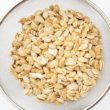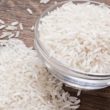Crohn’s disease is a chronic condition affecting the digestive tract. It is basically the inflammation of the last section of the small intestine and large intestine, although other areas of the gastrointestinal tract may be affected too. It’s not uncommon for individuals suffering from Crohn’s disease to experience no or very mild symptoms for a long time, which is also known as a remission. However, remissions are usually followed by flare ups involving very severe symptoms.
Signs and Symptoms
During flare ups, someone with Crohn’s disease may experience various signs and symptoms especially after the ingestion of certain foods that trigger them. They include:
- Abdominal pain
- Diarrhea
- Blood and mucus in the stool
- Unintended loss of weight
- Fatigue or extreme tiredness
Someone with the condition may experience all of the above signs and symptoms or only a handful of them. The severity may vary from person to person. For instance, one may encounter them severely while another one may only have mild ones. There are also a few less common signs and symptoms. They include:
- High temperature of 38°C (100°F) or higher
- Nausea and vomiting
- Joint pain and inflammation
- Mouth ulcers
- Eye redness and irritation
- Red an painful skin areas, especially in the legs
Causes
No one really knows the exact reason why Crohn’s disease show up and afflict an individual. However, many health experts believe that it is caused by a combination of certain factors such as:
- The person’s immune system
- Genetics
- Previous infection
- Environmental factors
- Smoking
To date, there is no research saying that it’s possible for Crohn’s disease to be caused by dietary factors. However, someone with the condition may opt for dietary changes prescribed by a specialist or dietitian that may help prevent the appearance or exacerbation of the different symptoms.
Treatment
No known cure exists for Crohn’s disease. However, there are certain treatments that can help in reducing the symptoms as well as in maintaining remissions. The primary treatment goal for children is to promote normal growth and development.
Reduction of the inflammation of the affected parts of the gastrointestinal tract can be done through the administration of steroid medications, or also known as corticosteroids. In children, a special liquid diet is recommended. This method helps ensure that the inflammation is reduced while supplying the right kinds and amounts of nutrients to promote healthy growth and development.
There are instances when the activity of the immune system is controlled through drugs known as immunosuppressants. Also, some people with Crohn’s disease may benefit from undergoing surgery. Through this, the inflamed part of the intestinal tract is removed, and then the healthy sections are stitched together.
Diet
Proper nutrition is important most especially for those with Crohn’s disease. It allows them to recover much faster from flare ups, and it also promotes normal and healthy growth and development of children afflicted with the condition. Definitely, there are certain foods to avoid, in particular those that are known to trigger the symptoms. The following are some of the most important diet recommendations for those with Crohn’s disease:
- Avoid trigger foods – Most people with Crohn’s disease encounter the various symptoms after the consumption of milk and dairy products, spices, fatty food, high-fiber food and alcohol. It is very important for a sufferer to keep a food diary to make it easier to pin point which foods trigger the condition.
- Opt for a low-fiber and low-residue diet – Most people with Crohn’s disease find it hard to digest foods that are high in fiber and those that add residue to the stool. Their consumption often leads to problems like abdominal pain and diarrhea. Some foods that are easy to digest include nuts, seeds, corn hulls, and raw fruits and vegetables.
- Consume foods that are rich in omega-3 fatty acids – Oily fish and supplements containing omega-3 fatty acids may be beneficial for individuals afflicted with Crohn’s disease. That’s because omega-3 fatty acids have excellent anti-inflammatory properties. Certain studies also suggest that including probiotics in the diet may prove to be advantageous.












